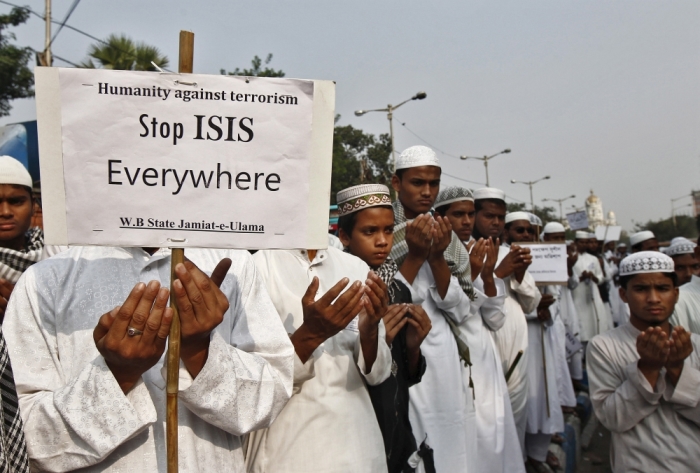Muslim Man Accused of Killing 11-Y-O Student in India for Refusing to Join ISIS

A tutor in northern India allegedly killed his 11-year-old student for refusing to join the Islamic State terror group, according to the victim's family.
The victim, identified as Ravi Pal, a class 3 student from Kaserua Khurd village in Uttar Pradesh state's Allahabad district, was choked to death by his tutor, identified only as Irfan, according to Asia News International.
The student's father said Irfan was pressuring his son to join IS, also known as ISIS or ISIL, and killed him after the victim refused to do so.
The victim's sister said Irfan called his brother promising to give a bicycle on March 19, and he went missing ever since.
Police found Ravi's body lying in a nearby field on Tuesday, and had a medical examiner perform an autopsy on the boy.
Superintendent of Police Rajesh Kumar was quoted as saying that the family didn't mention the boy was being pressured to join a terror group.
The victim was Hindu, and his tutor is apparently a Muslim.
IS isn't known to be active in India. Although home to the third largest Muslim population in the world, the Muslim minority in India is not seen as a fertile ground for recruitment by the terror group.
Muslims and Christians are persecuted in India by extreme Hindu nationalist groups.
Terrorist attacks in India have been blamed mostly on terror groups based in neighboring Pakistan.
However, IS has reportedly been looking to target India.
An internal recruitment document of IS, procured by the American Media Institute, revealed that the terror group is preparing to attack India to provoke an Armageddon-like confrontation with the U.S., USA Today reported last July.
"Even if the U.S. tries to attack with all its allies, which undoubtedly it will, the ummah (Muslims) will be united, resulting in the final battle," there document said.
Recently, seven Indian companies figured in a list of 51 commercial entities from 20 countries that have supplied, mostly unknowingly, components used by IS to construct improvised explosive devices, according to a study conducted by Conflict Armament Research.
The Indian firms were mostly found to be manufacturing detonators, detonating cords and safety fuses, the study said, noting that the components were all "legally exported" under government-issued licences from India to entities in Lebanon and Turkey, according to The Indian Express.



























